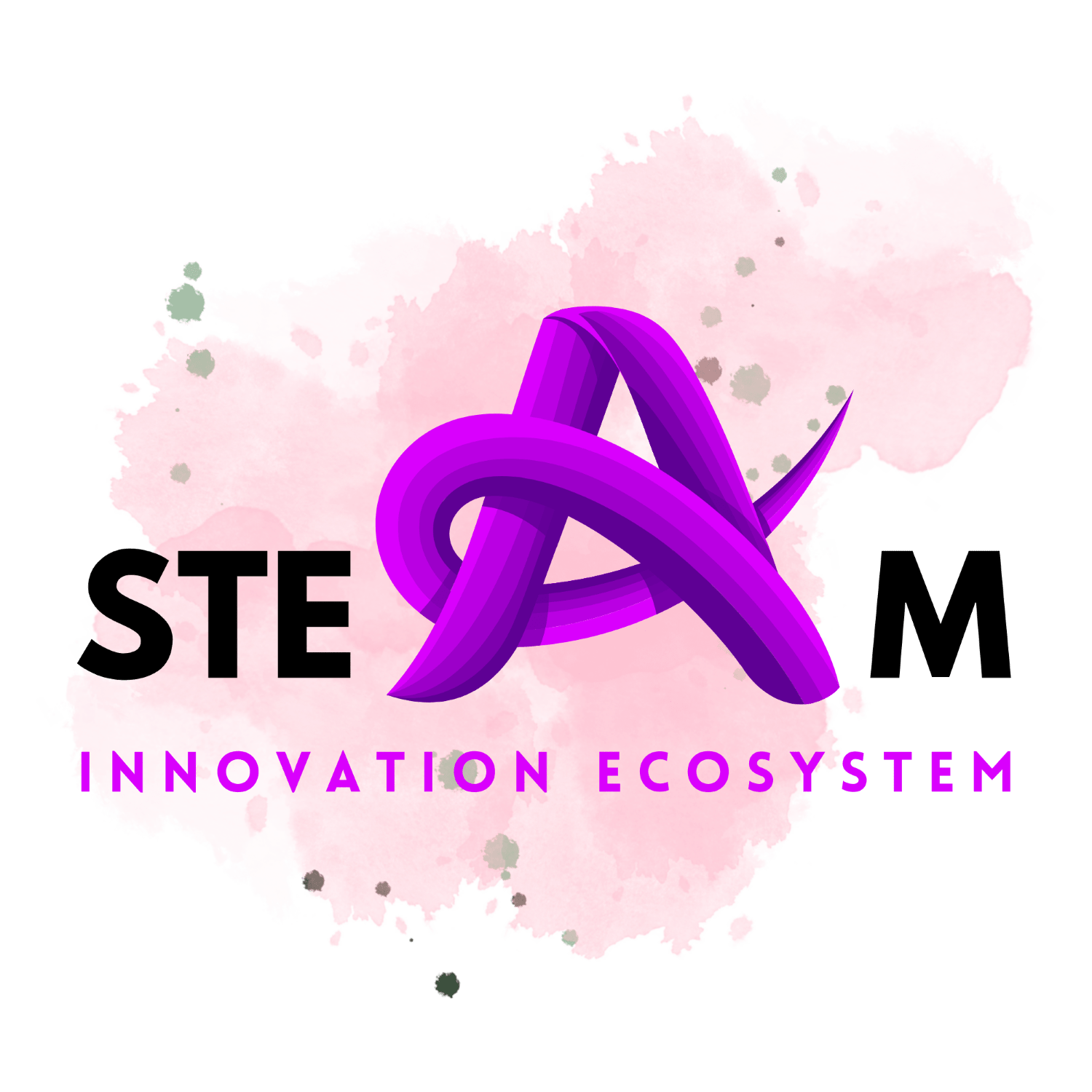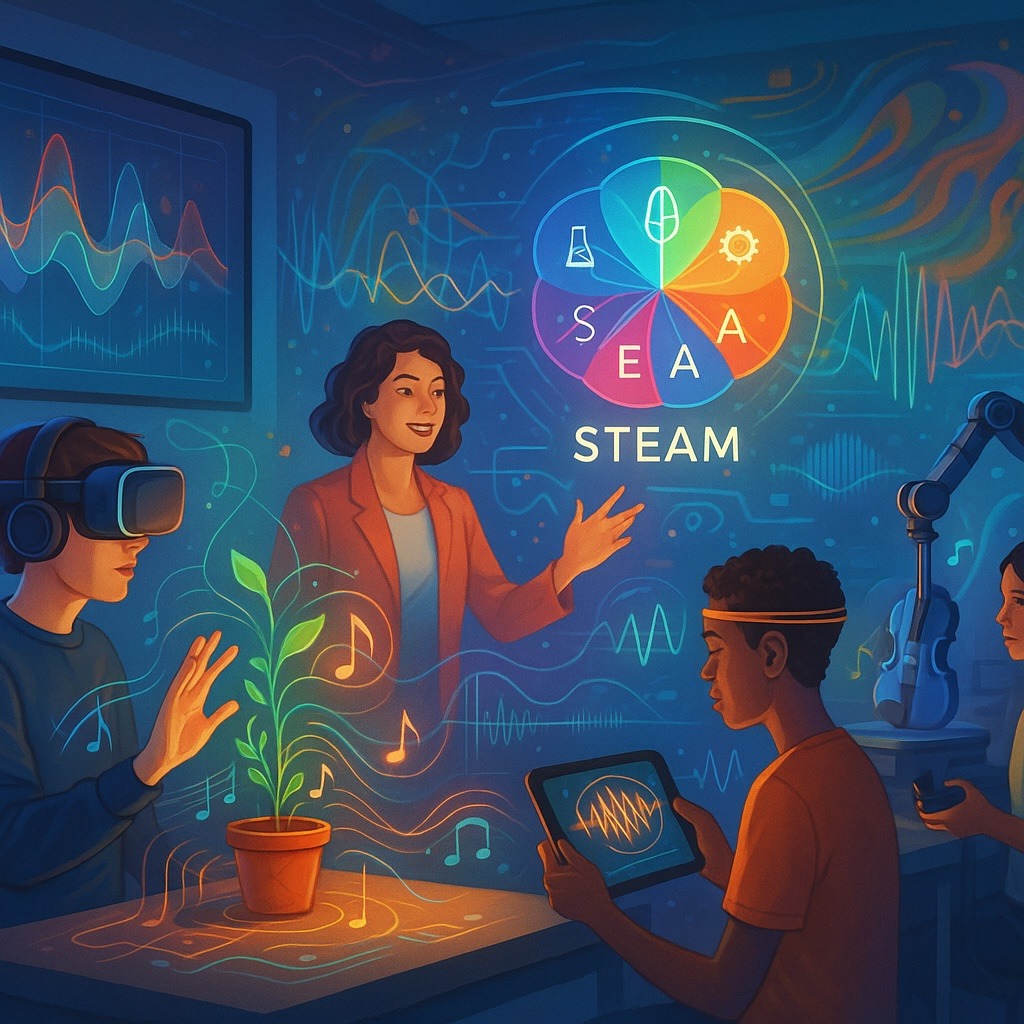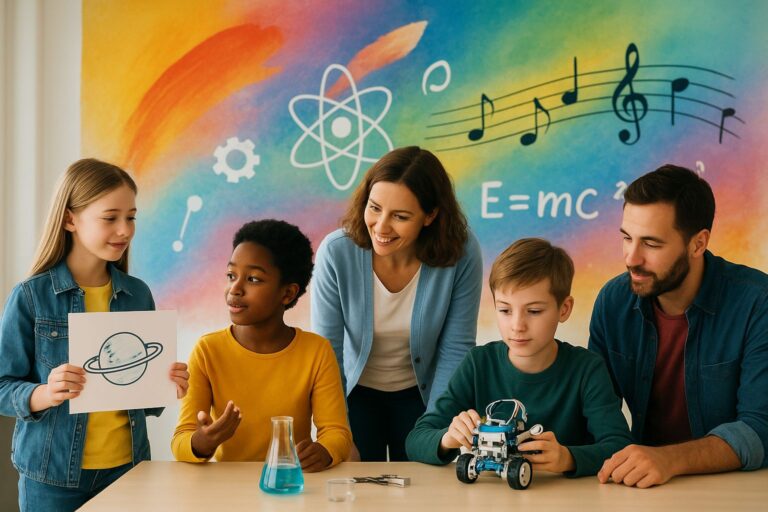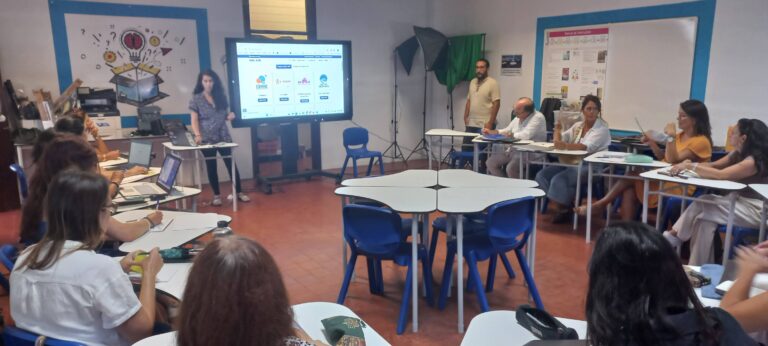Summary
Four countries – Greece (Science View), Cyprus (Inquirium), Portugal (NUCLIO), and Italy (Materahub) – are joining forces to transform schools into real creative laboratories where technology and art meet, and knowledge comes to life in engaging, inclusive, and contemporary ways.
The European project STEAM INNOVATION’s implementation phase is officially started!
Four countries – Greece (Science View), Cyprus (Inquirium), Portugal (NUCLIO), and Italy (Materahub) – are joining forces to transform schools into real creative laboratories where technology and art meet, and knowledge comes to life in engaging, inclusive, and contemporary ways.
What’s Happening?
The consortium will develop innovative teaching modules based on music, theatre, and making & tinkering (makerspace environments).
Students will bring their ideas to life, following the training and creating original projects to be showcased at an international festival.
Teachers will learn new, more effective teaching methods that are motivating, relevant, and aligned with today’s educational challenges.
Music in Italy and Cyprus as a Bridge in STEAM Education: More Than Just Sound
When we think of STEAM (Science, Technology, Engineering, Arts, and Mathematics), music isn’t always the first discipline that comes to mind. Yet, in many classrooms across Europe, music is becoming a powerful tool to build connections between subjects, between people, and between emotions and knowledge.
As part of the STEAM Innovation project, Italy (Materahub) and Cyprus (Inquirium) are exploring how music can support transversal skills like collaboration, creativity, emotional awareness, and digital literacy — all while keeping students actively engaged.
Music as Process, Not Product
Rather than treating music as a final performance or isolated subject, the STEAM Innovation project’s approach encourages students to see music as a process of discovery.
Through guided workshops and open-ended experimentation, students will:
- Translate patterns into rhythm, turning mathematics into melody.
- Use coding to create digital instruments, where technology becomes a canvas for sound.
- Explore how sound waves connect to physics, biology, and environmental science.
- Reflect on how music expresses identity, culture, and social inclusion.
In this context, music is no longer a standalone subject, it becomes a language that unites disciplines, invites emotion into learning, and turns classrooms into spaces of shared experimentation.
Sound and the Brain
Research increasingly shows that working with music can improve:
- Cognitive flexibility (https://pubmed.ncbi.nlm.nih.gov/38144978/),
- Concentration and memory (https://www.frontiersin.org/journals/psychology/articles/10.3389/fpsyg.2020.00266/full?utm_source) (https://pmc.ncbi.nlm.nih.gov/articles/PMC5648224/?utm),
- Emotional regulation (https://www.mdpi.com/2076-328X/14/9/793?utm)
- Interpersonal skills (https://www.verywellhealth.com/music-therapy-5211613).
By integrating music into STEAM learning, we tap into a multisensory approach that benefits diverse learning styles. For many students, especially those who may not thrive in traditional settings, music becomes a point of access and agency.
A Universal Language for Local Innovation
One of the strengths of music is that it transcends language and borders as theatre and making & tinkering. Each country brings its own cultural and educational context, but all share a common goal: to make learning more human, more creative, and more connected.
Looking Ahead
As the project moves forward, the role of music, theatre and makerspaces will continue to evolve. Future workshops, training, and festivals will showcase how students across Europe are using sound, stages and makerspace creations to think critically, collaborate effectively, and express themselves fully.
What’s Next?
In the coming months, the Italian team, along with partners from Greece, Cyprus, and Portugal — will launch:
Experimental training programmes
School-based workshops
Opportunities for discussion and exchange among experts, teachers, and students
Want to Stay Updated?
Follow the STEAM Innovation project on our official channels to discover:
- Upcoming events and school activities
- Open and replicable teaching materials
- Stories from our international partners
- The future of creativity has a new sound, and we can’t wait for you to hear it.





